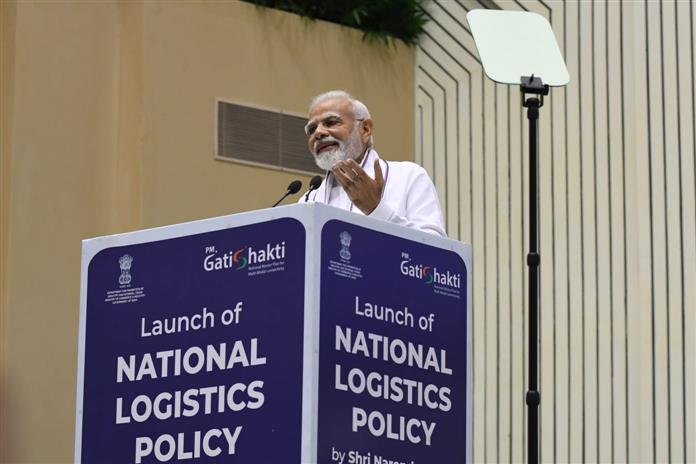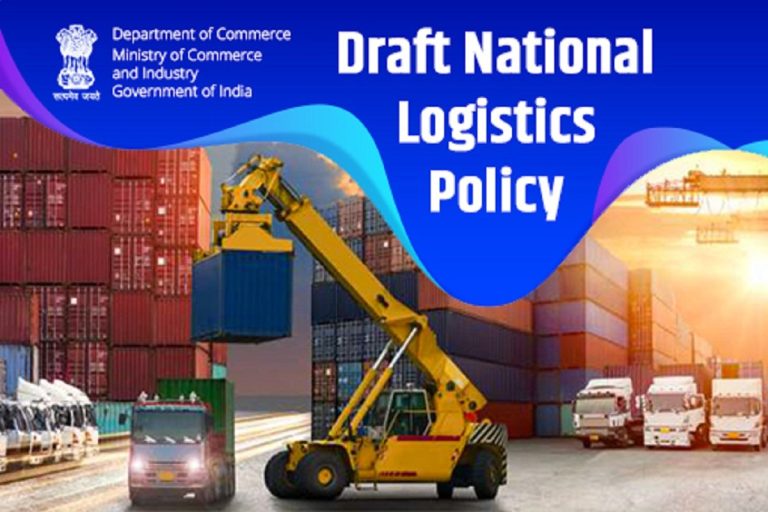The Union Cabinet, led by Prime Minister Narendra Modi, adopted the National Logistics Policy on Wednesday. PM Modi introduced the programme last week with the goal of lowering transportation costs and facilitating the smooth movement of commodities throughout the country.

Aside from that, the Cabinet authorised a production linked incentive (PLI) scheme for the “national programme on high efficiency solar PV modules” as well as changes to the Program for the Development of the Semiconductor and Display Manufacturing Ecosystem.
The Cabinet adopted the National Logistics Policy on Wednesday, which aims to reduce transportation costs by fostering the smooth movement of goods across the country.
The policy establishes an overarching, multi-jurisdictional, multidisciplinary, and comprehensive policy framework for the logistics industry. It is intended to increase the efficiency of logistics services and human resources by simplifying procedures, developing a legal framework, developing skills, mainstreaming logistics in higher education, and adopting appropriate technology.
The strategy establishes aims for lowering logistics costs in India to be equivalent to global benchmarks by 2030, improving the Logistics Performance Index ranking to be in the top 25 nations by 2030, and developing data-driven decision support mechanisms for an efficient logistics ecosystem.
The Cabinet also authorised a Rs 19,500-crore production linked incentive (PLI) plan for a “national programme on high efficiency solar PV modules,” with the goal of attracting Rs 94,000 crore in investment in the industry.
The initiative intends to create an ecosystem in India for the production of high-efficiency solar PV modules, reducing import dependency in the renewable energy industry. The PLI plan is expected to boost the government’s Atamnirbhar Bharat initiative while also creating jobs.
According to the government, solar PV manufacturers will be chosen through a transparent selection procedure, and the PLI would be paid for 5 years following the commissioning of solar PV manufacturing facilities based on domestic sales of high efficiency solar PV modules.
The government expects that around 65,000 MW per year of completely and partially integrated solar PV module manufacturing capacity will be built.
It also predicts that the solar PV sector employs around 1,95,000 people directly and approximately 7,80,000 people indirectly.
In addition, the Cabinet authorised changes to the programme for developing the semiconductor and display manufacturing ecosystem.
The government would fund half of the project costs for all technological nodes establishing Semiconductor Fabs in the country. It will also provide fiscal support of 50% of the project cost for the establishment of Display Fabs.
Aside from that, the government would fund 50% of the capital expenditure for the establishment of Compound Semiconductors/Silicon Photonics/Sensors Fab and Semiconductor ATMP/OSAT facilities in the nation. The scheme’s target technologies will also comprise Discrete Semiconductor Fabs.

